#nora hidalgo
Text
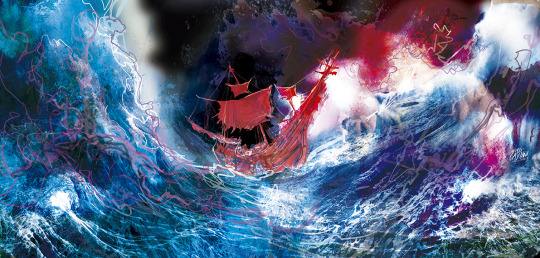
"Tres poetisas y un navío espectral" por Carla Mbarroso, Nora Bruccoleri y Viviana Hidalgo. Con ilustración de Andrés Casciani. Publicado en el número aniversario del semanario Kalewche (3/9/23)
Para leer completo: https://kalewche.com/tres-poetisas-y-un-navio-espectral/
andrescasciani.com

6 notes
·
View notes
Text
RWBY Spanish dub
RWBY: Ice Queendom
Shion Zaiden
EN: Kdin Jenzen
LA: TBA
Negative Weiss
EN: Kara Eberle/Casey Lee Williams (songs)
LA: Romina Marroquín Payró
Negative Blake
EN: Arryn Zech
LA: Alondra Hidalgo
Whitley Schnee (Dream Actor)
EN: Howard Wang
LA: Moisés Iván Mora
Jacques Schnee (Dream Actor)
EN: Jason Douglas
LA: Arturo Mercado
Jaune Arc (Dream Actor)
EN: Miles Luna
LA: Óscar Flores
Nora Valkyrie (Dream Actor)
EN: Samantha Ireland
LA: Analiz Sánchez
Pyrrha Nikos (Dream Actor)
EN: Jen Brown
LA: Berenice Vega
Lie Ren (Dream Actor)
EN: Neath Oum
LA: Alan Fernando Velázquez
Little Weiss’
EN: Elizabeth Maxwell
LA: TBA
#rwby#rwby spanish dub#rwby ice queendom#shion zaiden#kdin jenzen#negative weiss#kara eberle#casey lee williams#romina marroquín payró#negative blake#arryn zech#alondra hidalgo#howard wang#moisés iván mora#jason douglas#arturo mercado#miles luna#óscar flores#samantha ireland#analiz sánchez#jen brown#berenice vega#neath oum#alan fernando velázquez#elizabeth maxwell
1 note
·
View note
Text

welcome to velouria !
make sure to tag all intros with v.intro and follow everyone here !
dahlia hidalgo / cdckissingbooth
harry styles / hazitwas
lucia pineda / downunder.mp3
nora casella / rebellicns
ramone valerio / shrimpramon
0 notes
Text
La sobremesa nos descacelera.
youtube
La pugna se produce entre el “tic tac” del tiempo que avanza rápido e inexorable y el “tac tic” con el que se simbolizan nuestros intentos para pararlo, para exprimirlo, para aprovecharlo al máximo.
Agencia: Darwin & Verne
Anunciante: Pernod Ricard
Marca: Ruavieja
Contacto del cliente: María Prados, Elma García, Pía Amuchástegui y Javi de la Vara
Presidente Creativo: Carlos Sanz de Andino
Director General: Alberto Martínez
Directores Creativos: Pablo Mendoza & Juan Vargas
Directora de Cuentas: Ana Hidalgo
Supervisora de Cuentas: Nora Ormaetxea
Producer Agencia: Paula Hinojosa
Director de Contenido: Bel Rodríguez
Equipo de Contenido: Cristina Sanchón
Estrategia: Helena Álvarez y Alba Mulero
Productora: BeSweet
Director: Guillermo Madurga
Productor Ejecutivo: Juan San Roman
Producer Productora: Celia Esteban
DOP: Octavio Arias
Música: Jose Battaglio
Color: Xavi Santolaya
#ruavieja#alcohol#drinking#bebida#tiempo#insight#sobremesa#familia#amigos#copy#creative#spain#spot#nacional#darwin&verne#Youtube
0 notes
Photo
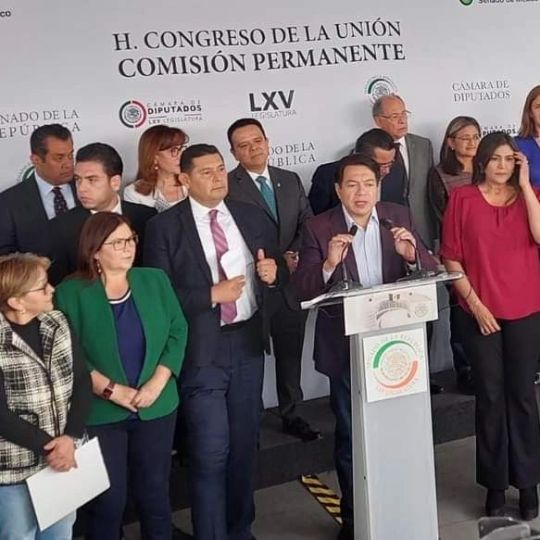
🔴LEGISLADORES DE MORENA A FAVOR DE QUE SE RESPETE LA DECISIÓN DEL PUEBLO EN EL MES DE JUNIO • El dirigente nacional de Morena, Mario Delgado respaldó el trabajo de la candidata de Aguascalientes, Nora Ruvalcaba quien ha sido objeto de hostigamiento. Ciudad de México. En apego a derecho, se presentó la candidata a la gubernatura de Aguascalientes por la coalición de Morena, Nora Ruvalcaba en el Senado de la República para denunciar públicamente el hostigamiento a su equipo de trabajo. En presencia del dirigente nacional de Morena Mario Delgado, Nora Ruvalcaba señaló que en su estado, existe un clima de molestia porque las actuales autoridades se caracterizan por el dispendio de los recursos públicos y el sobre costo en obras de impacto social. “Aguascalientes ha tenido un desempeño muy sobresaliente ya que el trabajo del presidente Andrés Manuel López Obrador es reconocido y Nora Ruvalcaba se ha dedicado a tocar caso por casa y ha desenmascarado los casos de corrupción que se registran en ese estado” puntualizó el dirigente morenista Mario Delgado. Por su parte, el senador de Morena Alejandro Armenta refirió que el recinto legislativo es un espacio para exponer lo que pasa en los estados, más aún cuando se debe asegurar la estabilidad y tranquilidad en los 6 estados donde habrá elecciones el próximo mes de junio; siendo estos estados Aguascalientes, Durango, Hidalgo, Oaxaca, Quintana Roo y Tamaulipas. Legisladores de la Cámara de Diputados y de Senadores que representan a Morena se apostaron porque los procesos electorales se realicen respetando la voluntad popular y, confiaron en que la coalición Juntos Haremos Historia integrada por Morena, Partido del Trabajo, Partido Verde Ecologista, Fuerza por México y Redes Sociales Progresistas logren el 6 de 6 el próximo 5 de junio y abonar en esas entidades al Proyecto de Nación de la 4ª Transformación que encabeza el presidente Andrés Manuel López Obrador. En la rueda de prensa estuvieron presentes además el coordinador de los diputados federales de Morena, Ignacio Mier, el diputado federal Raymundo Atanacio Luna, la diputada federal Yeidckol Polensky, entre otros. https://www.instagram.com/p/CeB8IbvJPK9/?igshid=NGJjMDIxMWI=
0 notes
Text

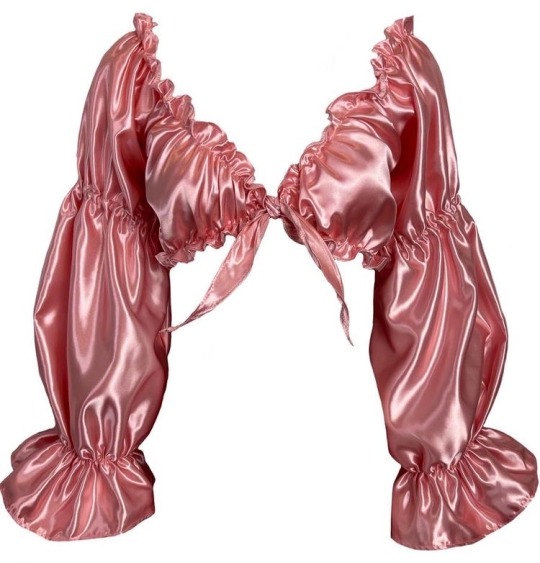
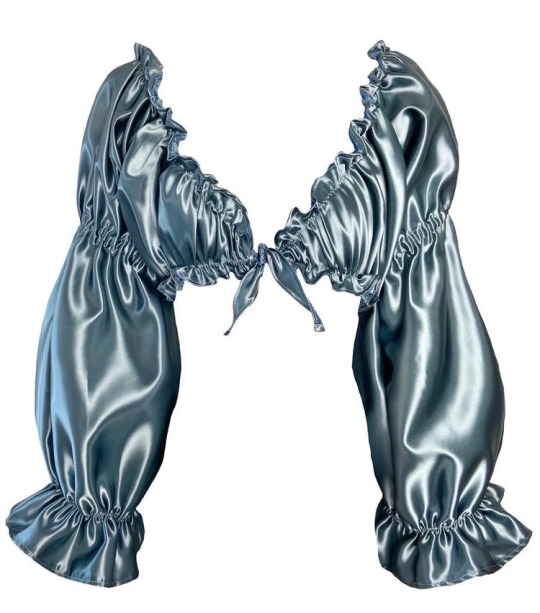
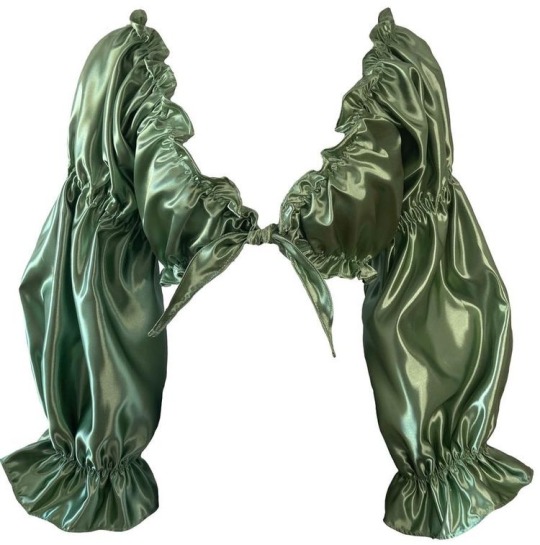
Nora Hidalgo Paloma Blouse in Gardenia, Pink, Pacific Ocean Blue and Jade
4K notes
·
View notes
Text
Centro de Acopio de Víveres para afectados del Huracán Nora en Ciudad Universitaria
Centro de Acopio de Víveres para afectados del Huracán Nora en Ciudad Universitaria
La UMSNH instala un centro de recolección en el auditorio de usos múltiples en el CIAC, dentro de ciudad universitaria de 9 AM a 6 PM
Seguir @UNIVERSITASM
El rector de la Universidad Michoacana de San Nicolás de Hidalgo (UMSNH), Raúl Cárdenas Navarro, manifestó su solidaridad con los michoacanos que sufrieron afectaciones por el paso del huracán “Nora”, asimismo, convocó a la comunidad…
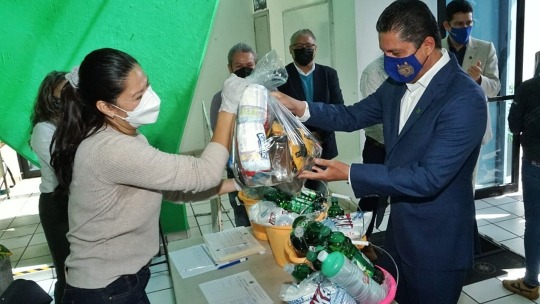
View On WordPress
#Centro de Información Arte y Cultura#Centro de recolección de viveres#Ciudad Universitaria#Costa michoacana#huracán "Nora"#umsnh#Universidad Michoacana de San Nicolás de Hidalgo
0 notes
Text
^le soleil brille notre planète va de plus en plus mal
bonsoir ou bonjour ,je suis en train d’écrire deux lettres une sur l’écologie ,une sur se que veut nous faire avaler le gouvernement , ma première lettre fais six feuilles écrite à la main ,la deuxième fait plus de vingt feuilles , ,je dénonce qu’on fait rien pour sauver la planète ,vous parlez tous ,pendent se temps la forêt Amazonienne brule pour le profit des agriculteurs du Brésil, on attend quoi pour faire classer certaines forêts à Madagascar une des plus belle forêt y en reste plus que 30% , en Cote D’ivoire la forêt détruite à 90% pour y planter des cacaoyers ,la dernière forêt qui reste ,les enfants vendu par leurs parents du Burkina Faso la sulfate au glifosate ,le président ferme les yeux, comme dans d’autres pays d’Afriques ou il y à des trafiques de pangolins , d’éléphants ,plus les chinois qui demande aux présidents Africains de virer une famille de leurs terre pour ouvrir une usine, bientôt nous serons ,huit milliards ,on fait quoi contre la surpopulations ,comme dit le chef cuisinier Thierry Marx nous somme une personne pour un hectare ,bientôt nous serons six pour un hectare ,nous somme dans le pays des droits de l’homme j’accuse les français de acheter du chinois ,de cautionner le mal vire de beaucoup de chinois ,de cautionner le non respect du peuple chinois par leur président , Madame Ane Hidalgo ,vous faite le grand paris ,par contre se que je trouve pas bien vous allez faire changer les voitures diesel à certaines personnes qui son âgé ,par contre on touche pas au gros pays qui pollue au co2 au gaz à effet de serre les Emirats Arabes ,le Canada qui cherche le pétrole ,vous parlez tous de l’insécurité, vous faite jamais rien tout les politiques ,les bons étrangers en on marre ,toujours du bla bla ,faut faire comme a su le faire Charle Pasqua ?tout se qui respecte pas le pays on les renvois dans leur pays d’origine avec une interdiction de revenir dans le pays , on nous parle de la burka ,nous somme dans le pays des droits de l’homme ,on interdit la burka ,la croix en publique ,voila un bout de mes deux lettres qui risque de finir au tribunal de paris ,faite donc lire ça à Ian Brossat ,j’aimerais bien que y m’aide avec le parti communiste , je vote plus ,j’en ai Marre de voir que les riches de plus en plus riche que les pauvres de plus en plus pauvre ,que on sais que notre planète va de plus en plus mal ,que long fait rien pour laisser faire du profit aux multinationales ,nous somme le pays de l’évasion fiscale ,de la fraude au travail au noir ,à la fraude à la sécu ,faudrait faire comme dans les pays du nord Suède , Norvège , Finlande, Danemark ,les riches comme les moins riche paie l’mpôt sur le revenu ,depuis Chirac que veut dire le mot politique ? je vous parle pas de l(hôpital, une catastrophe ;à force d’avoir fermer des lits ,de pas vouloir investir dans la recherche ,alors que on a une des meilleur médecine du monde ,des sous on en lâche en crédit allouer à !’armée , même si je vote plus je regarde toute les chaines d’informations ,bfm tv ,France 24 ,et autre ,je sais que les politiques vous voulez un jour finir par faire voter une loi qui nous oblige à aller voter ,oubliez pas se qui avais dans le temps marquer sur nos pièces égalité ,fraternité ,liberté ,donc je dit liberté de ne pas aller voter , ,je envois tout les politiques au tribunal ,coca cola qui met des appareils gratuit un mois puis payant , nutella qui fait déforester pour planter des arbres à huile de palme , y va se poser un très gros problème y va y avoir jusqu’à quatre degrés du réchauffement climatique ,donc l’Amérique Latine Nora plus d’eau pour arroser ses cultures comme la glace aura fondu sur les glaciers ,l’Afrique ne pourra plus cultiver ,il faudra que ses deux continent immigre ,l’Europe avons nous les moyens de les accueillir ? .Les politiques parle de l’islamiste pur et dur ,il me parle jamais du Qatar qui paie les mouvements islamistes . Les politiques parle de la drogue ,jamais il ne bouge ,il ne font rien ,se serais bien de supprimer les aides . Nous somme dans le pays des droits de l’homme ,j’accuse les français qui hachette du fabrique en Chine de cautionner le mal travailler des ouvriers dans les usines ,je suis aller voir sur internet si on trouve des télés fabriquer en Europe ,la dernière marque Philips à en fabriquer a fermer la branche télé ,comme il y a la concurrence Asiatique ,j’accuse les Français de vouloir payer moins cher ,par contre quand y von acheter un téléphone portable de ne pas regarder le prix ,j’accuse aussi Monsieur Macron et Madame Merkel de ne pas défendre les entreprise Européennes , j’accuse aussi les patrons qui veule faire fabriquer moins cher , D(acheter en Asie en Chine . j’accuse Bruxelles de ne pas baisser les taxes ,quand on veut acheter du tout fabriquer Français dans les centres commerciales on n’en trouve pas , les montres Lip ,les slips Français et autres . Monsieur Macron a regarder de haut ,a mépriser les gilets jaunes ,il a fait un tour de table avec des maires , il a pas fat une réunion avec les gilets jaunes , il a parler à la télé à dix heures du matin cela ne se fait pas on parle à vingt heures . Au mois de juillet on n’a u 7% D’augmentation de l’électricité ,p puis 1,29 % en Août ,puis au mois d’octobre 4 % Gaz ,plus en novembre plus de 4 % sur les mutuelles . Monsieur Macron nous dit se sera les gros de la finances qui von rembourser les 750 milliards emprunter à l’ Europe ,on arrive pas à leurs faire payer l’impôt sur le revenu ,se sera comme toujours le peuple qui va payer . il faudrait faire comme en Suède , Norvège , Finlande , Danemark ,leurs faire payer l’impôt sur le revenu ,pour sauver la planète se serais bien de faire voter une loi qui interdit l’importation des bois exotiques , d’obliger les multinationales du bois à replanter des arbres ,à Madagascar il ne reste plus que 30 % d’une des plus belle forêt au monde ,les femmes se serve du bois pour cuire leurs aliments dans des poêlon, il on le gaz . faut interdire à l’entreprise petit navire de mettre des carrés bois à la mer avec des appâts de pêcher des thons qui n’on même pas frayer , faut interdire les longs filets de pêche ,faudrait interdire les massacres des éléphants des rhinocéros pour leurs cornes , des massacres des requins pour leurs ailerons ,pour finir en Chine . pour faire des économies y faudrait embaucher plus de gens pour faire des contrôles à la fraude à la sécu ,au travaille au noir ,ne plus laisser travailler les grosses multinationales qui ne veule pas payer l’impôt sur le revenu ,faudrait mettre une amende sur chaque ouvriers licencier par les entreprises qui délocalise pour faire encore plus de profits comme les salaires moins payer que en France , faut Monsieur Macron ,avec le président Américain à arriver à faire que les Chinois ne peuvent plus aller en Afrique demander aux présidents Africains de virer des familles pour prendre leurs terres pour faire des usines ,d’acheter leurs terre pour faire une récolte de riz . Monsieur macron j’espère que cette crise du coronavirus va vous donner envie de réfléchir que vous allez plus fermer des hôpitaux pour faire des économies de lits ,plus investir dans le matériels ,dans la recherche , vous lâchez des crédits pour l’armée , les politiques y ne faut plus laisser tout faire aux multinationales à force de leurs laisser tout faire un jour on ne pourra plus rien faire ,on consomme une planète ,ça pourrais être plus si certains se en fiche ,il faudrait vraiment s’occuper du problème de la surpopulation ,en inde les animaux on plus leurs places ,faudrait s’occuper de Bolsonaro qui laisse mettre le feu dans sa forêt qui ne respecte pas les tribus primitives ,faut sauver les Pygmées qui son menacer par l’industrie du bois . au Mali y à un gros problème y a des nuages de criquets pourquoi vous ne faite rien ,pourquoi ne pas aider les entreprises qui fabrique que du tout fabriquer en France on leurs baisse les charges ,on leurs baisse un peut l’impôt sur le revenu , au lieu de vouloir baisser l’impôt sur la taxe d’habitation ,se serais pas mieux de aider les bas salaires ,en France beaucoup de gens vive bien . ; pour faire des économies vous avez dit on paie 9 retraites ,la dixième faut emprunter ,un jour vous allez nous dire on va devoir baisser les retraites ,pourquoi ne pas s’occuper de la fraude à la sécu ,du travail au noir ,des évasions fiscales ; En France on consomme trop de médicaments ,y a des médecins qui donne des arrêts de travaille trop facilement ,les politiques en profite ,les présidents touche de grosses rente quand plus président ,y à les banque qui font du profit sur le dos des gens ,faut supprimer le agios quand on ne retire pas dans sa banque ,y a les syndic qui prenne de plus en plus cher ,les mutuelles ,pas ^pour rien que les politiques baisse les remboursements au profits des mutuelles ,voila comment je vois les choses .pour la surpopulation j(ais poser une question à mon maraicher du marcher ,nous allons faire comment pour nourrir 10 milliards d’humains ,y ma répondu se que pensais les légumes faut leur laisser le temps de pousser même sous serre voila comment je vois les choses ,un politique Anglais a dit on va bouger le jour ou il va y avoir une grosse catastrophe
4 notes
·
View notes
Photo
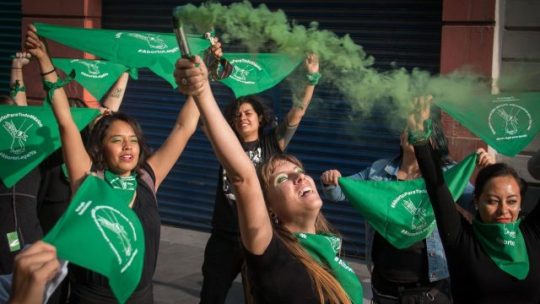
New Post has been published on https://notimundo.com.mx/guerrero/diputadas-de-morena-presentan-iniciativa-para-el-aborto-legal-en-guerrero/
Diputadas de Morena presentan iniciativa para el aborto legal en Guerrero

El Grupo Parlamentario de Morena presenta una iniciativa para establecer la interrupción legal del embarazo.
Chilpancingo, Gro., a 13 de enero 2022.- Las diputadas Gloria Citlali Calixto Jiménez, Nora Yanek Velázquez Martínez y Beatriz Mojica Morga a nombre del Grupo Parlamentario de Morena, presentaron una iniciativa de reforma al Código Penal del Estado, para establecer la interrupción legal del embarazo dentro de las primeras 12 semanas de gestación, así como las penas consecuentes a quien se realice o ayude a realizar este procedimiento después de los plazos establecidos con o sin el consentimiento de la mujer.
Al dar lectura a la propuesta la diputada Gloria Citlali Calixto Jiménez expuso que el Congreso tiene la obligación de legislar para reconocer el derecho humano a la salud reproductiva de las mujeres, niñas y adolescentes para que puedan decidir continuar o interrumpir su embarazo de manera legal y segura para con ello evitar que sean criminalizadas garantizando el acceso a los servicios especializados.
La legisladora externó que con esta iniciativa se pretende erradicar la cultura racista y patriarcal y hacer visible la realidad social que viven muchas mujeres, que en algunos casos son víctimas de sucesos de violación, es por esta y otras razones que se pretende respaldar a este sector que en muchos casos viven en situación de vulnerabilidad, violencia, pobreza y que no tienen acceso a servicios de salud dignos y que se ven obligadas a poner en riesgo su propia vida, situación que vulnera sus derechos humanos y el acceso a la salud, plasmado en la Constitución Política.
La responsabilidad como autoridades es realizar cambios
Dijo que la responsabilidad como autoridades en el estado de Guerrero es realizar los cambios y reformas necesarias para garantizar que todas las personas como es el caso de las mujeres puedan disfrutar de sus derechos y poder decidir sobre su cuerpo, sobre todo cuando son víctimas de violencia “se ha hecho poco al respecto, y es por eso que se pretende garantizar la despenalización de la interrupción legal del embarazo para que no sea considerado como un delito siempre y cuando sea antes de las doce semanas de gestación; y así, evitar que se genere un mecanismo de violencia de género, para ello se vuelven necesarias las respectivas reformas a las legislaciones locales para que las mujeres tengan acceso al derecho a decidir”. Acotó Calixto Jiménez.
La legisladora externó que para no violentar la reforma al Código Penal del Estado en relación a la interrupción legal del embarazo, en esta iniciativa también se imponen sanciones a quienes hicieran abortar a una mujer con o sin su consentimiento una vez pasado el tiempo estipulado y está apegada a la sentencia emitida por la Suprema Corte de Justicia que puntualiza: “resulta inconstitucional sancionar penalmente a la mujer que decide interrumpir su embarazo”. Por lo tanto, se trata de acatar una sentencia en materia de derechos humanos más que ahondar sobre una cuestión ético-moral.
Por último, la diputada Gloria Citlali Calixto dijo que de aprobarse dicha reforma Guerrero se sumará a los estados de la Ciudad de México, Oaxaca, Veracruz, Hidalgo, Baja California y Colima que han hecho las adecuaciones respectivas.
0 notes
Text
Morena esta lista con aspirantes que competirán en encuesta por candidatura a gobernador de 3 estados
Morena esta lista con aspirantes que competirán en encuesta por candidatura a gobernador de 3 estados
México.-El Consejo Nacional de Morena definió a sus cuatro precandidatos para las elecciones gubernamentales del 2022 en Aguascalientes, Hidalgo y Tamaulipas.
De acuerdo con el noticiero “Por la mañana” de Ciro Gómez Leyva para Radio Fórmula, en Aguascalientes van: Guadalupe Martínez, Nora Ruvalcaba, Daniel Gutiérrez y Aldo Ruiz.
Mientras que en Hidalgo fueron elegidos: María Meced González,…
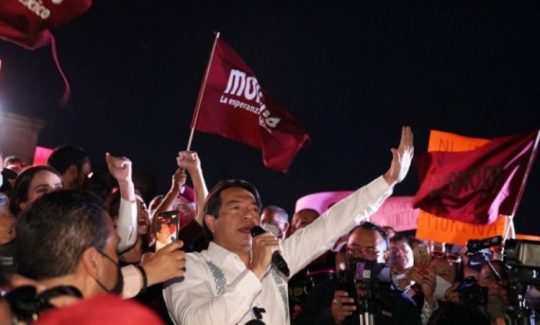
View On WordPress
0 notes
Photo
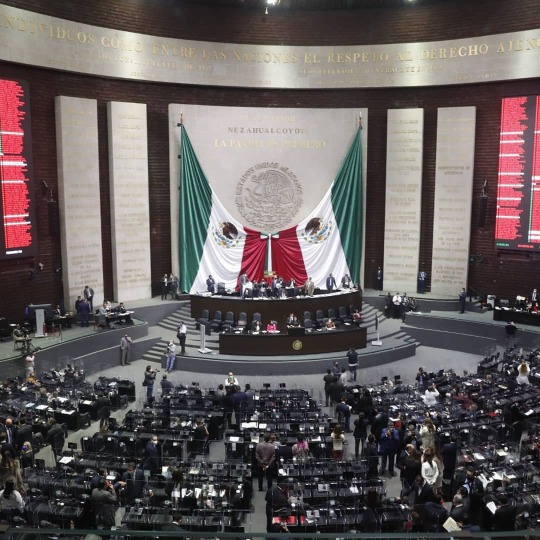
La Cámara de Diputados lamenta pérdida de vidas humanas como consecuencia de los huracanes • En la sesión, el Pleno guardó minuto de silencio en memoria de las víctimas • Además, exhortó a las autoridades de los tres órdenes de gobierno a garantizar y destinar recursos para atender a damnificados Ciudad de México.- La Cámara de Diputados lamentó la pérdida de vidas humanas como consecuencia de los fenómenos meteorológicos derivados del paso de los huracanes Grace, Ida, Nora y Larry, en Nayarit, Sinaloa, Jalisco, Michoacán, Colima, Hidalgo, Puebla, Veracruz, Yucatán y Estado de México, en particular en el municipio de Ecatepec; en Tlaquepaque, Jalisco; y en Tula, Hidalgo. Envió asimismo sus condolencias a los deudos y familiares por las sensibles pérdidas Mediante un pronunciamiento leído por el presidente de la Mesa Directiva, diputado Sergio Carlos Gutiérrez Luna, “esta soberanía se solidariza con las personas afectadas y exhorta a las autoridades de los tres órdenes de gobierno que correspondan para que garanticen y destinen los recursos necesarios para atender a los damnificados por estos fenómenos naturales”. Enseguida, el diputado presidente pidió guardar un minuto de silencio en memoria de las víctimas. Informó que los órganos de gobierno de la Cámara de Diputados en conjunto con los grupos parlamentarios, con fundamento en los artículos 20, 33, 34 numeral 1, inciso B de la Ley Orgánica del Congreso General de los Estados Unidos Mexicanos, así como el artículo 79 del Reglamento de la Cámara de Diputados, acordaron emitir dicho pronunciamiento. https://www.instagram.com/p/CTkAVGvshkp/?utm_medium=tumblr
0 notes
Photo

Por “méritos eminentes y relevantes servicios prestados a la patria en la atención de la emergencia sanitaria por Covid-19”, dos doctoras tamaulipecas, una del municipio de Altamira y otra de Matamoros recibieron la condecoración “Miguel Hidalgo 2020”. Se trata de la doctora Nora Hilda Vega Camacho asignada en el hospital “Rodolfo Torre Cantú” del municipio de Altamira y quien estuvo en primera línea atendiendo la pandemia. También recibió esta condecoración la doctora Beatriz Alejandra de la Garza Cepeda quien se desempeña como especialista en medicina de urgencias en el Hospital General de zona número 13 de ciudad de la ciudad de Matamoros. Fue hoy miércoles 16 de septiembre cuando se hizo entrega de la condecoración “Miguel Hidalgo” en grado de «Collar al personal médico y personal de salud por estar enfrente de la pandemia del COVID-19. Fue durante la ceremonia del 210 aniversario de la Independencia de México en el zócalo de la ciudad de México, donde el presidente de la República Andrés Manuel López Obrador hizo entrega de 58 condecoraciones a trabajadores de la Secretaría de Salud, IMSS, ISSSTE, Sedena, INSABI, Marina y Pemex. Fue en ese evento donde las doctoras tamaulipecas recibieron esta condecoración, mismas que fueron propuestas por sus colegas y por sus pacientes quienes se recuperaron del Covid- 19 bajo su atención médica. La condecoración “Miguel Hidalgo” es la más alta distinción que se entrega a mexicanos por sus actos heroicos y en esta ocasión debido a la situación de la emergencia sanitaria por el Covid- 19 se determinó entregarla al personal de salud que está en primera fila combatiendo la pandemia. El grado “Collar” que recibieron estos 58 trabajadores de salud incluyendo las 2 doctoras tamaulipecas corresponde a los años que tenía Miguel Hidalgo cuando murió. #Brownsville #Matamoros #JorgeMojarrita #FacebookLive #Entrepreneur #Harligen #Vallehermoso #868Vlog #LiveStream #Business #Mcallen #Reynosa #956News #Streaming #News #Laredo #ReporteFilas247 #LiveMusic #Marketing #Victoria #GetCleanWater #StayHome #SocialMedia #CorpusChristi #Tampico #JReganMarketing #StartUp #Live (at Matamoros, Tamaulipas) https://www.instagram.com/p/CFOUAvfFeVq/?igshid=1balw38efdtyu
#brownsville#matamoros#jorgemojarrita#facebooklive#entrepreneur#harligen#vallehermoso#868vlog#livestream#business#mcallen#reynosa#956news#streaming#news#laredo#reportefilas247#livemusic#marketing#victoria#getcleanwater#stayhome#socialmedia#corpuschristi#tampico#jreganmarketing#startup#live
0 notes
Photo

Dos doctoras de Tamaulipas recibieron la condecoración Miguel Hidalgo 2020 otorgada por el Gobierno de México; una es del sector salud de la entidad en el municipio de Altamira y la otra labora en el IMSS de Matamoros. Se trata de las doctoras del Hospital General de Altamira “Rodolfo Torre Cantú”, Nora Hilda Vega Camacho, y del IMSS Beatriz Alejandra de la Garza Cepeda, quienes recibieron la más alta condecoración que entrega el gobierno de México. Beatriz Alejandra de la Garza Cepeda, se convirtió en una de los 58 trabajadores del sector salud de todo el país que recibirán este reconocimiento. Se le considera que tiene una notable entrega y dedicación, méritos eminentes y servicios prestados a la Patria en la atención de la emergencia sanitaria por COVID19, procurando la salud de las familias tamaulipecas. La doctora Beatriz labora en el IMSS de Matamoros. La convocatoria estuvo abierta del 11 al 30 de agosto, periodo en el que fueron postuladas nueve mil 179 personas para obtener la condecoración en el Grado Collar, quienes fueron propuestos por dos mil 764 pacientes dados de alta por esta enfermedad y 15 mil 711 trabajadores de la salud. #BreakingNews #Matamoros #LiveStreamNews #Brownsville #Press #Tamaulipas #Journalist #Texas #News #Mexico #Reporter #USA #868Vlog (at Matamoros, Tamaulipas) https://www.instagram.com/p/CFOSDKVlg5Q/?igshid=1j7lm1m3553wk
#breakingnews#matamoros#livestreamnews#brownsville#press#tamaulipas#journalist#texas#news#mexico#reporter#usa#868vlog
0 notes
Text
Discuss the relationship between place, identity and displacement through the case of mainlander forced migrants of 1949 in Taiwan.
Author/ Chi Chu
‘The embodiment of the homelessness refers to the circumstances of the refugees away from 'home'”, Warner (1994, p.48) ever states. This was also the experience for 'mainlander forced migrants' in 1949. 1937 to 1960 was the most chaotic period in modern Chinese history. After the Second Sino-Japanese War, the Civil War and the Korean War, a large number of people were forced to migrate between China and Taiwan. After the Chinese Civil War (1945-1949) between the Kuomintang and the Communist Party, the government of the Republic of China (ROC) retreated to Taiwan in 1949. Since then, mainland China has been governed by the People's Republic of China (PRC). At the time, about 2 million 'mainlander forced migrants'[1] migrated to Taiwan and became one of the 'rootless groups' in history. Using this case, this essay discusses the relationship between place, identity and displacement through analysing post-war literature. First, the essay will consider how migrants shape nostalgia and the 'sense of places' through 'a taste of home' or 'ritual' to establish their identity and sense of belonging to hometown. Second, it aims to discuss how mainlander forced migrants have confronted the double ambivalence and transformation of identity while/after 'returning home'. Finally, this essay argues that the relationship between place, identity and displacement is a dynamic process. For mainlander forced migrants who moved to Taiwan after 1949, their identity is mainly influenced by the political situation between China and Taiwan and memory shaped by forced migrant communities.
The sustenance of displacement and nostalgia have been the collective experiences of mainlander migrants who left their hometown (mainland China) in 1949 but could never truly return to their hometown physically and psychologically. One of the reasons is the dilemma of the political situation between China and Taiwan. Because the new regime, the PRC, has governed mainland China since 1949, these displaced people from the mainland have experienced a kind of political displacement. Meanwhile, not only was the international refugee system still in the process of being established at that time, but the protection or settlement policies for these forced migrants was also incomplete (Nedostup, 2010). So far, the displacement from 1945 to 1949 caused by the Chinese Civil War is still a major talking point. Hence, the mainlander forced migrants, who have been difficult to catalogue in the relief system or following refugee conventions, have been put on hold by the international community and are framed up in the political conflicts between China and Taiwan (Ibid). Looking at history, Lary (2010) shows that, for many Chinese people, the wars meant endless separation, which was a sudden incidents without any signs, and it just happened naturally. In a documentary about the life of mainlander forced migrants in Taiwan, Hebei Taipei (2016), the protagonist, Li, mentions that all the roads he had travelled were not ones he would have chosen himself, but were forced on him by the external situation: 'it was fate that chose me.' This is indicative of the experience of mainlander forced migrants. For them, Taiwan is not their home: their real hometown is in mainland China (Taiwan People News, 2015). As Turton (1996) states, “one assumption of 'displacement' indicates ideally people 'belong' to a certain place and gain the identity from their association with a particular place fundamentally or naturally” (Cited in Kiberab, 1999, p.405). However, returning to the hometown has become a utopia for mainlander forced migrants. In turn, nostalgia and the cohesion of the forced migrant community can be observed in post-war literature, through which migrants attempted to reconstruct the memories of their hometown during their displacement. Yu (2011[1974]), part of the first generation of mainlander forced migrants, describes the attachment to hometown in his poem, Nostalgia:
When I was a child,
Nostalgia was a tiny postage stamp,
I, on this side,
My mother, on the other.
When I was older,
Nostalgia became a ship ticket,
I, on this side,
My bride, on the other.
Later,
Nostalgia was a squat tomb,
I, outside.
My mother, inside.
And now,
Nostalgia is a coastline, a shallow strait.
I, on this side,
The mainland, on the other.
It can be observed from Yu's text that displacement is a lack of existence, perhaps more fundamental than the lack of shelter (Cresswell, 2004). It means that mainland migrants were forced to leave their hometowns and lost the sustenance of their hometowns in the process. Also, through Yu’s expressions, 'here' and 'there', the hometown is depicted as far away. Moreover, through expressions of nostalgia, mainland China is undoubtedly a place of inner connection and a sense of belonging (Augé, 2017, p. 60). Yu's poem also responds to Kibreab's (1999) statement that “the propensity of many societies, including formerly 'cohesive' ones, to define themselves based on their ethnic, national or spatial origin, or religion”. This indicates that in Yu's texts it can be seen that the description of his ethnic origin through the relationship between mother/ mainland China (on the other side) and him/ Taiwan (on this side). Also, Relph (1976) notes ‘ the roots are significant to provide people a point of prospect and the attachment of a particular place in terms of spiritual and psychological sides. For human beings, it is an essential need to be attached and have deep ties to places. Hence, in the nostalgia of mainlander forced migrants, spatial origin and the roots represent place attachment psychologically. Besides, ‘place attachment is often defined as 'an affective bond or link between people and specific places'’ (Hidalgo & Hernández 2001; Cited in Windsong, 2010, p. 206). For instance, Tang (1979, p. 2), a food writer and first generation member of the mainland diaspora, describes how 'the taste of food provokes my nostalgia of hometown. It would bewonderful if all mainlander forced migrants could return to the mainland and try a taste of hometown.' This implies that a taste of home represents the place-based, physical attachment of hometown. Additionally, over time, for mainlander forced migrants who have not been able to return to their hometowns, it has been necessary to restore and re-establish a set of cultural customs belonging to their hometown to maintain their roots (where they are from) and release the nostalgia (Sun, 2010, p. 48). For them, nostalgia and the spiritual substance of hometown are pin on a particular object or practice, such as a taste of home and ritual. These objects/practices represent the reappearance of 'place', which can be imagined and even reconstruct the memory of hometown. As a consequence, these objects/practices encapsulate a sense of place and Les Lieux de Memoire (Nora). As Tuan (1975;1990) states, the place becomes a symbol of spirit to express emotions, not just to indicate location or function. The thought of home transcends the boundaries of residence and includes places that are often described as 'sense of place' with a sense of belonging (May, 2000, p. 748). As mentioned above, in a displacement context, the place provides spiritual and memorial sustenance and is not just a physical place but can also be a sense of place presented in any object.
The memories and identities of hometown formed by displaced mainlanders take shape through practices such as food literature or rituals in the alien land. In the process, a desire to return to their hometown is created. For instance, as Chung (1959) mentions in My Native Land, 'the blood of the native villagers must be flown to the original hometown to be stopped.' This means that the nostalgia of mainlander forced migrants will stop only when they make their return. Due to the political situation between China and Taiwan, mainlander forced migrants were not allowed to visit relatives in China and 'return to their hometowns' until 1987. Nevertheless, the experience of returning to their hometown has also become a critical point to deny the imagination of mainland China shaped in these four decades by mainlander forced migrants. During this time, the mainlander forced migrants became truly psychologically 'rootless' and lost their identity. Identity has the function of identification and connection for individuals. It distinguishes the difference between insider and outsider, and connection meets the sense of belonging between individuals and communities. In the case of mainlander forced migrants, when they returned to their hometowns they discovered that profound changes had occurred in the past few decades. This made their mental connections to the landscape disappear (Lin, 2010, p. 304). As Chu (1992) mentions in In Remembrance of My Buddies from the Military Compound, ‘the moment when I was able to return to my hometown, I found that for my relatives who remained I was a Taiwan compatriot and a Taiwanese; However, when going back to the Island (Taiwan), where I have lived for over four decades, people refer to me as a member of the mainlander forced migrants from the other province of mainland China… Thus, I have a deep feeling that I am like the displaced bat, which cannot be classified into bird or vertebrate’. Chu (2002[1997], p. 213) also states the mistake about her ancestral history in The Ancient Capital. For Chu, people blame forced migrants for retreating to Taiwan in 1949 and abandoning ancestral tombs and the reunion with family. Another example is the documentary, How High is the Mountain, which reveals the relationships within individual encounters of mainlander forced migrants and history after 1949. In one scene, a son asks, 'How did you feel when you went back to your hometown yesterday?'. His father replies, 'I do not know anyone ... all have changed'. 'Will you want to go back again?', the son asks. Father shakes his head and says, 'it is not like my hometown at all. My original house is gone.' In the cases mentioned above, the disconnection from hometown is a response to the difference of sense of belonging, as well as the disparity between ‘self’ (forced migrant) and 'others' (hometown). Furthermore, mainland migrants sink into a dilemma because they belong to neither their original hometown nor Taiwan.
Accordingly, whether the ‘identity’ would truly transform after a while when the original hometown is no longer how it appears in memory. For mainlander forced migrants, the identity of 'outsider' signifies that nowhere can be attached and status of displacement—not only outside Taiwan but also outside the hometown in mainland China (Mei, 2006, p. 12). Even though displacement is still constant, psychologically, these mainlander forced migrants have recognised they have lived for most of their lives in Taiwan and have recognised Taiwan. However, the identity of mainlander forced migrants has been continuously split by the political situation between China and Taiwan. The identity issue has continued to ferment (Yang, 2010, p. 64). The first reason for the identity issue is that the governments of ROC and PRC have emphasised the 'homogeneity' of identity in the post-war era in order to establish the coherence of opposite political ideology between China and Taiwan, respectively. Consequently, this long-term opposing position has created a difference in consciousness/ideology/memory between mainlander forced migrants and their families/hometowns. Secondly, because the Taiwanese political environment has changed drastically since 1949, mainlander forced migrants have been marginalised in Taiwanese society. The atmosphere of society had changed from Chinese consciousness to local Taiwanese consciousness (Lin, 2010, p. 313; Ko, 2010, p. 81). The reason was a series of political conflicts that took place in Taiwan after 1949, such as the 228 Incident, which accelerated the differentiation between mainlander forced migrants and local Taiwanese . Therefore, for mainlander forced migrants, they are neither Taiwanese nor Chinese because of the difficulties in the processes of assimilation and acculturation. ‘They are just a wandering soul that has no place to go/ belongs.’ (Lin 2019). The situation faced by mainlander forced migrants corresponds to the concept of 'double ambivalence' proposed by Weisberger (1992) in Marginality and Its Directions. This idea indicates the anxiety of migrants facing a marginal situation in an alien land. This anxiety stems from the difficulty striking a balance between the culture of the alien land/new nation-state and the hometown/native nation-state. Neither can migrants rule out the influences created by their native culture. Consequently, migrants are in a marginal position, not in-between, but unable to adapt to each side, resulting in the double-ambivalence. They can only return to their native hometown geographically but cannot truly go home psychologically. This indicates that mainlander forced migrants have confronted the dilemma in the sense of belonging/identification and might they retreat to the margins of society.
As mentioned above, mainlander forced migrants have faced the split between 'hometown' and 'nation-state' which has changed their own identities. According to Crowley (2003), who discusses the concept of narrative identity proposed by Paul Ricoeur, there are two types of 'identity': idem and ipse. Ipse identity corresponds to the relationship in the space-time context produced through the accumulation of cultural construction, narrative body and time. Often it must be reproduced through the subject's narrative. Not only can it only be formed in the process of continuous construction, but also often generates various deformations under the cultural norms. For example, great differences in the identity consciousness of hometown can be observed between different generations. Due to social oppression, although new generations recognize Taiwan, they continue the consciousness of hometown and the sense of national identity from older generations (Ko, 2012, p. 41&146), resulting in a double identity of nation-states (Shen 2010: 128). There is such a difference of identity because, for the second generation, life in Taiwan is their first memory instead of in mainland China. Therefore, in response to Ricoeur's statement, the identity of mainlander forced migrants in different generations is a continuous construction between self and history/environment. Therefore, identity is an invisible and dynamic process/concept.
Overall, according to the case of mainlander forced migrants living in Taiwan after 1949, it can be seen that the relationship between place, identity and displacement is a dynamic process, which is not only based on the changes of time and space but also reflected in the political context, the inner cohesion of displacement communities, the meanings of identity for different generations and more. Furthermore, for mainlander forced migrants in 1949, even 'return' cannot eliminate their psychological or physical displacement. Because of long-term displacement, the memories caused by nostalgia, rather than a visible place, become an 'imaginary place', the spiritual attachment onto which forced migrants hold. Consequently, the double ambivalence of place and identity presents the displacement situation in the context of forced migrants.
Reference
Augé, M. (2017[1992]). NON-LIEUX: intruduction à une anthropologie de la surmodernité [In Chinese] trans. By S. Sun. Taipei: Garden City Publishers.
Chu, T.-H. (1992). In Remembrance of My Buddies from the Military Compound [In Chinese]. Taipei: Rye Field Publishing Co.
Chu, T.-H. (2002[1997]). The Ancient Capital [In Chinese]. Taipei: INK.
Chung, L.-H. (1959). My Native Land [In Chinese]. Available at: http://cls.lib.ntu.edu.tw/hakka/author/zhong_li_he/he_composition/he_onlin/short_stoy/short_16.htm (Accessed 10 May 2020).
Cresswell, T. (2004). Place: A Short Introduction. US: Wiley-Blackwell.
Crowley, P. (2003). Paul Ricoeur: the Concept of Narrative Identity, the Trace of Autobiography. Paragraph, 26(3), p. 1-12.
Kiberab, G. (1999). Revisiting the Debate on People, Place, Identity and Displacement. Journal of Refugee Studies, 12(4), pp. 384-410.
Ko, P.-W. (2010). The Research of "Home-Country Writing " of Taiwanese Proses After 1980s [In Chinese]. PhD Dissertation, National Cheng Kung University.
Lary, D. (2010). The Chinese People at War: Human Suffering and Social Transformation, 1937-1945 (New Approaches to Asian History). Cambridge: Cambridge University Press.
Li, N. (2015). Hebei Taipei [Documentary in Chinese]. Available at: https://www.imdb.com/title/tt4842868/ (Accessed 10 May 2020).
Lin, Klaw (2019). No Place to Go and Belongs. [In Chinese]. Available at: https://living.taronews.tw/2019/11/22/537312/ (Accessed 10 May 2020).
Lin, P. (2010). Being Strangers at Home: Mainlander Taiwanese in China. In M.-K., Chang (ed.) Nation and Identity: Perspectives of Some “Waishengren”[In Chinese]. Taipei: Socio Publishing Co. Ltd, pp. 301-329.
May, J. (2000). Of Nomads and Vagrants: Single Homelessness and Narratices of Home as Place. Environment and Planning D: Society and Space, 18(6), p. 737-759.
Mei, C.-L.(2006). The Vicissitude in Mainlander Association (eds.) The Memory in Drifted period: Undeliverable family letters. Taipei: INK.
Nedostup, R. (2010). Defining Displacement: A Few Problems in Analyzing Wartime Refugees in China and Taiwan, 1937-1960 [Lecture]. Available at: http://ccs.ncl.edu.tw/files/1217%E5%BC%B5%E5%80%A9%E9%9B%AF%E6%95%99%E6%8E%88%E6%91%98%E8%A6%81.pdf(Accessed 10 May 2020).
Nora, P. (1989). Between Memory and History: Les Lieux de Mémoire, trans. by M. Roudebush. Representations, 26, p. 7-24.
Relph, E. (1976). Place and placelessness. London: Pion Limited.
Shen, S.-C. (2010). Fatherland and Homeland. In M.-K., Chang (ed.) Nation and Identity: Perspectives of Some “Waishengren”, 111-146) [In Chinese]. Taipei: Socio Publishing Co. Ltd, pp. 111-146.
Sun, H.-Y. (2010). National Identity of Waishenren, the Second Generation in Taiwan. In M.-K., Chang (ed.) Nation and Identity: Perspectives of Some “Waishengren” [In Chinese]. Taipei: Socio Publishing Co. Ltd, pp. 31-74.
Taiwan People News (2015). Discussion of political identity [Online Essay in Chinese]. Available at: https://www.peoplenews.tw/news/ebd2a5b4-99a2-43d2-9ff1-04d6fd31e4e2 (Accessed 10 May 2020).
Tang, L.-S.(1979). Get Away from Home. Taipei: China Times Publishing Co.
Tuan Yi-Fu (1990). Topophilia: A study of environmental perception, attitudes, and values. NY: Columbia University Press.
Tuan, Yi-Fu (1975). Topophilia: A study of environmental perception, attitudes and values. Human Ecology. 3(2), p. 131-133.
Warner, D. (1994). Voluntary Repatriation and the Meaning of Return to Home: A Critique of Liberal Mathematics.Journal of Refugee Studies,7(2/3), p. 160-174.
Weisberger, A. (1992). Marginality and Its Directions. Sociological Forum, 7(3), p. 425-446.
Windsong, E. A. (2010). There is no place like home: Complexities in exploring home and place attachment. The Social Science Journal, 47(1), p. 205-214.
Yang, M.(2010). The Aesthetics of Nostalgia: The literature of Mainlander Authors of 1949. [In Chinese]. Taipei: Showwe Information Co., Ltd.
Yeh, J. & Tanf, S.-C. (2002). How High is the Mountain [Documentary in Chinese]. Taipei: Taiwan Public Television.
Yu, K.-C. (2011[1974]). Nostalgia[In Chinese]. Wuhan: ChangJiang Literature.
[1] In her lecture, Nedostup (2010) discusses how government officials found it difficult to define the veterans and civilians who migrated to Taiwan after 1945, and especially in 1949. Political and cultural uncertainties are reflected in the terms used in documents and in secondary historical materials, including political categories (compatriots), geographic cultures (mainlander diasporas/forced migrants), and social categories (refugees).
0 notes
